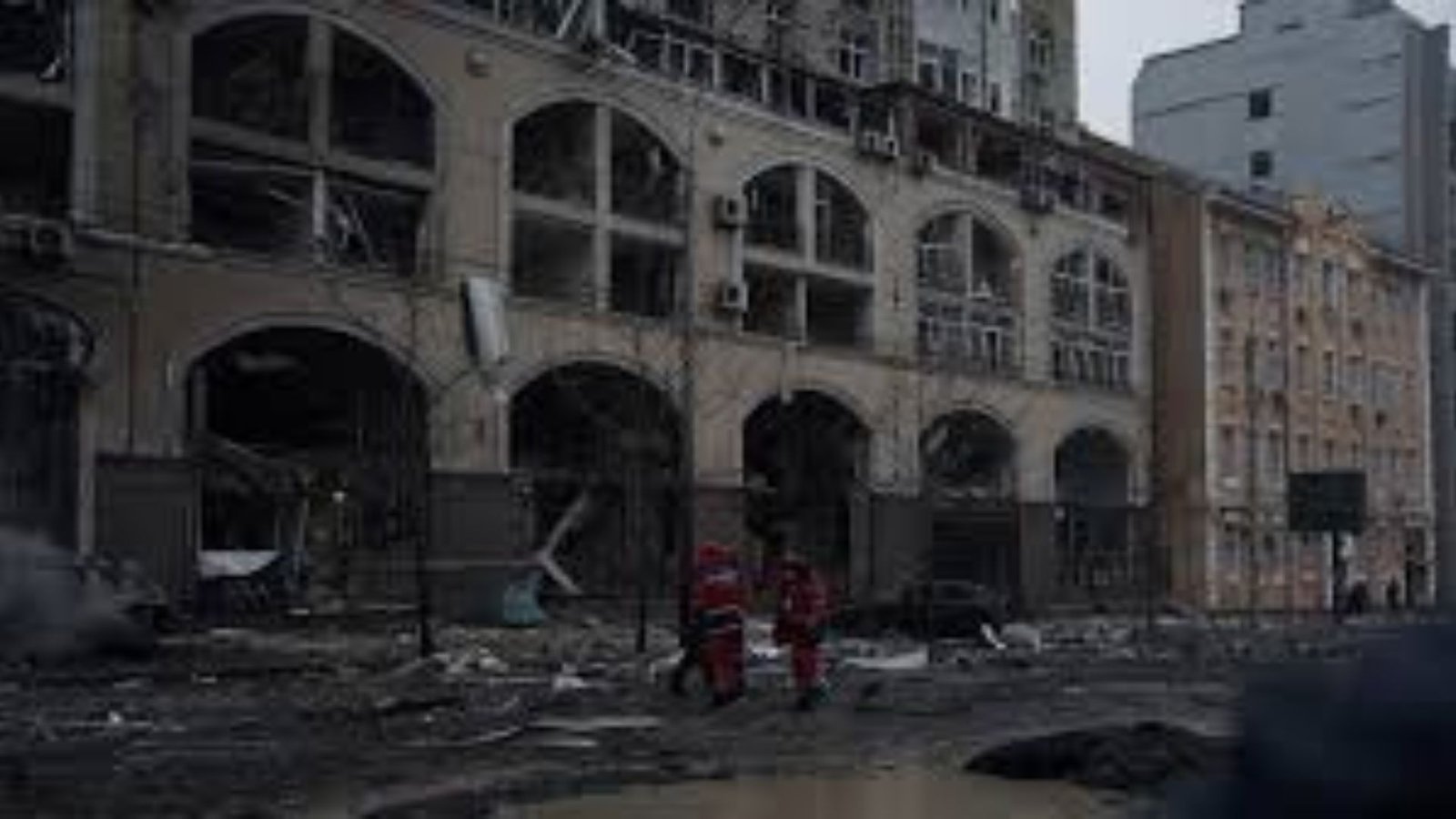An attack on Kyiv on Friday caused damage to several embassies which also include the Portuguese Embassy. Russia blamed Ukraine’s air defence for the destruction. It also accused Portuguese media of spreading Russophobic views.
The building affected housed multiple embassies. Among them were the embassies of Portugal, Albania, Argentina, North Macedonia, and Montenegro. The diplomatic mission of the Palestinian Authority was also in the building. The attack has raised questions about the safety of diplomatic missions in conflict zones and the ongoing impact of the war on foreign representations.
Read More About: Portugal Proposes New Pay For Waste System For Citizens To Boost Recycling
Attack On Portuguese Embassy In Kyiv

The Portuguese government called the incident absolutely unacceptable. It summoned the Russian ambassador to protest formally. The Ministry of Foreign Affairs expressed strong disapproval of the damage and sought answers.
The Portuguese government said in a statement that it still supports Ukraine and its independence. Officials emphasized the need for accountability in the conflict and highlighted the risks posed to international diplomacy by such attacks. Portugal’s response underscores its commitment to maintaining the safety and integrity of its missions abroad.
Russia Blames Ukraine For Attack
Russia’s embassy in Portugal responded with a statement on Telegram. It blamed the damage on Ukraine’s “unprofessional” use of air defence systems.
The statement said:
The damage to the building housing the chancellery of the Portuguese diplomatic mission resulted from the unprofessional use of the Ukrainian anti-aircraft defence system, which has repeatedly demonstrated its ‘effectiveness’
Russia also accused Portuguese media of presenting biased narratives to create hostility toward Russia. The embassy’s statement attempted to shift responsibility away from Russian actions.
It also criticized the broader international response to the conflict, arguing that media coverage unfairly targets Russia. This defense reflects Russia’s ongoing narrative about the war and blames external factors for unintended consequences.
Russia’s Military Claims
The Russian Ministry of Defence explained the attack’s targets. It claimed to have hit military sites in Kyiv which includes Ukraine’s Security Service command centre and a missile development office. It also said it targeted Patriot air defense batteries.
Russia claimed that the attack was a response to Ukrainian strikes on Russia’s Rostov region.
The statement said:
It was the response to the Ukrainian bombardment of Russia’s Rostov region with US and British ATACMS and Storm Shadow missiles on December 28
Russia’s framing of the situation highlights its justification for the continued escalation of attacks on Ukrainian cities.
These claims have been met with skepticism by Ukraine and its allies. Ukrainian officials argue that Russia’s actions deliberately put civilian lives and infrastructure at risk. The ongoing blame game adds to the complexity of the conflict with each side defending its strategies and motives.
Accusations Against Ukraine
Russia accused Ukraine of placing military sites in civilian areas. It claimed this practice led to incidents like the embassy damage.
The embassy said:
By placing military installations in city limits, Ukraine causes tragic consequences.
Russia argued its strikes only targeted military and industrial sites. It blamed Ukraine for civilian damage due to its choice of locations for military operations.
This accusation is part of Russia’s broader effort to deflect criticism. Russia seeks to justify the collateral damage caused by its strikes by pointing to Ukraine’s defensive tactics. Ukrainian officials argue that their actions are necessary to protect their citizens and maintain control over key areas.
International Concerns
This incident adds tension between Russia and other nations. It raises concerns about the safety of its embassies in Portugal. It also highlights the risks faced by diplomats in Ukraine.
Portugal’s decision to summon Russia’s ambassador shows its dissatisfaction. It aligns Portugal with other NATO and EU countries calling for accountability from Russia.
The broader international community continues to express concern about the impact of the war on global stability and diplomacy.
Many countries have called for greater protection of diplomatic missions in conflict zones. This incident highlights the challenges of ensuring the safety of foreign personnel while addressing the root causes of the conflict. It also emphasizes the need for a united response to safeguard international norms.
Diplomatic Fallout
The event shows the dangers of maintaining diplomatic missions in a war zone. Ukraine’s defence against Russian attacks creates risks for civilians and foreign missions.
Russia’s explanation repeats its usual stance. It claims its strikes are precise and that Ukraine’s actions cause collateral damage. Ukraine faces tough choices. It must defend its cities while trying to protect civilians and international missions.
The fallout from this incident may lead to calls for additional security measures at embassies. It also makes people wonder if fighting groups should try to hurt civilians as little as possible. The international community’s response will likely shape future diplomatic engagements and strategies in conflict zones.
The damage to Portugal’s embassy in Kyiv highlights the risks of war. Russia blames Ukraine’s air defence while Portugal protests against Russia. The incident shows the challenges of ensuring safety in a conflict zone.





